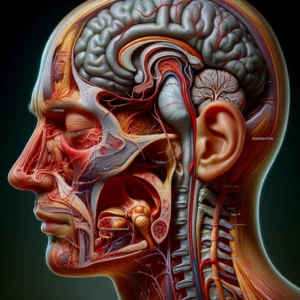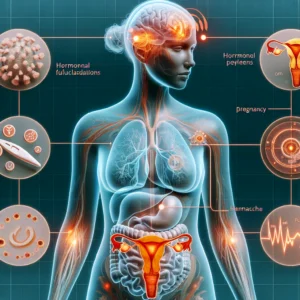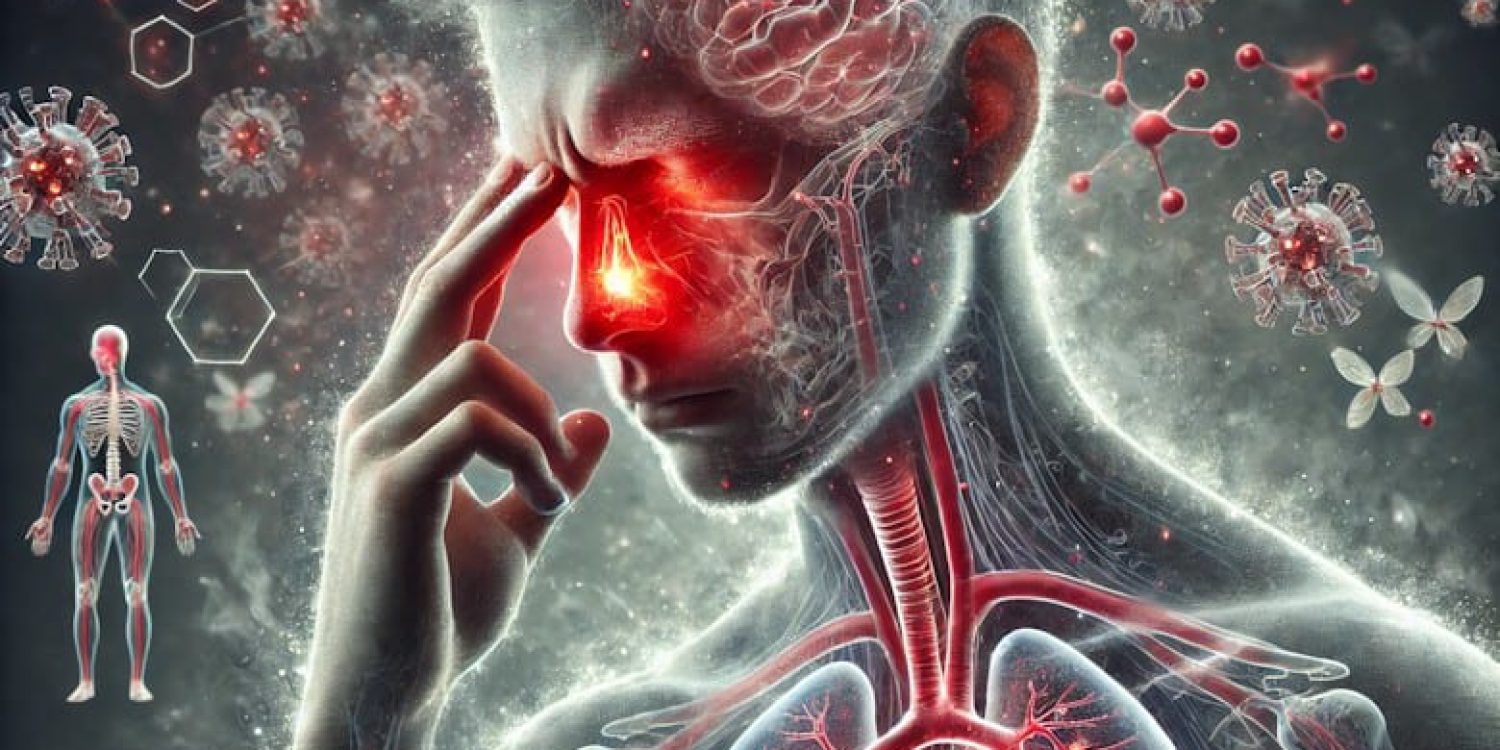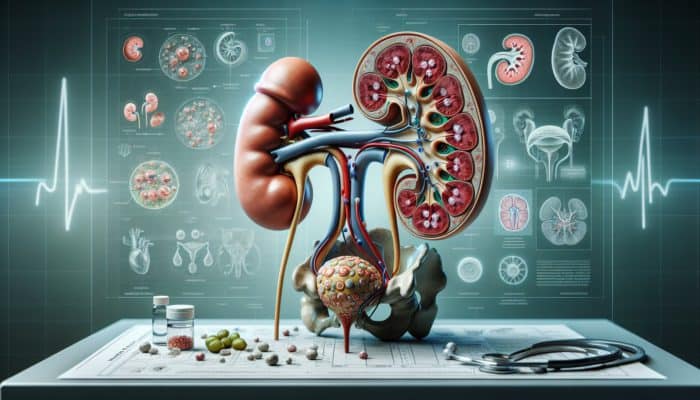Headache Causes You Should Know
Headaches are a prevalent health issue that can significantly disrupt your daily activities, impacting your focus, productivity, and leisure time enjoyment. They can appear in many different forms, each associated with a unique set of triggers and symptoms. Gaining insight into various headaches is essential for effective management and treatment, allowing individuals to tailor their approaches to their specific experiences and needs.
Whether you suffer from occasional discomfort or ongoing chronic pain, identifying the underlying causes of your headaches can empower you to pursue suitable therapies and lifestyle modifications. As you delve into the complexities of headache management, it's crucial to consider various treatment options, including both conventional and alternative methods. Therapies such as balanced acupuncture, neurological acupuncture, and manual therapy can provide relief by targeting the root causes of your discomfort.
By exploring these diverse options, you can embark on a holistic journey to alleviate your headaches and enhance your overall health and well-being.
Essential Insights for Headache Management
- Tension headaches are the most prevalent form and are often described as a persistent band-like pressure around the head.
- Migraine headaches involve severe, throbbing pain, frequently accompanied by nausea, vomiting, and heightened sensitivity to light and sound.
- Cluster headaches are intensely painful, occurring in cyclical patterns, often localized around the eye.
- Sinus headaches arise from sinusitis, causing pressure and pain in the forehead, cheeks, and nasal areas.
- Hormonal headaches, often seen in women, are linked to hormonal fluctuations and can manifest during menstruation, pregnancy, or menopause.
 Understanding Tension Headaches and Their Triggers
Understanding Tension Headaches and Their Triggers
Recognizing Patterns and Triggers for Tension Headaches
As you consider your personal experiences, you may notice patterns leading to tension headaches, such as extended periods spent at a desk, emotional strain, or poor ergonomics. Identifying these triggers can be instrumental in preventing future episodes. Common contributors include stress from work, lack of sleep, and even dehydration. By keeping a headache diary, you can track when and why these headaches occur, enabling you to take proactive measures to minimize their impact on your daily life.
Implementing a Holistic Strategy for Tension Headache Relief
A multifaceted approach is often beneficial to alleviate tension headaches effectively. Implementing therapies such as balanced acupuncture focuses on restoring energy flow throughout your body, targeting specific acupoints that may contribute to muscle tightness and stress. Incorporating relaxation techniques like deep breathing exercises or yoga can also help relieve tension and promote overall well-being. Adopting a comprehensive strategy that addresses physical and emotional stressors may significantly reduce the occurrence and severity of tension headaches.
Maximizing Relief Through Neurological Acupuncture and Manual Therapy
neurological acupuncture can further enhance relief efforts by addressing the nervous system's role in pain perception. This method explicitly targets the pathways involved in headache development, potentially altering your brain's response to pain signals. When this technique is combined with manual therapy methods like massage or myofascial release, you may experience substantial relief from the tension that often exacerbates your headaches. Together, these therapies can create a synergistic effect that alleviates pain and promotes lasting relaxation and well-being.
 Deep Dive into Migraine Headaches
Deep Dive into Migraine Headaches
Migraines are not merely severe headaches; they represent intricate neurological episodes that can incapacitate you for hours or even days. Characterized by intense throbbing pain often localized to one side of the head, migraines may also bring along symptoms such as nausea, vomiting, and extreme sensitivity to light and sound. Certain triggers—ranging from specific foods to hormonal fluctuations or environmental changes—can provoke these debilitating episodes, making it essential to identify and manage these factors for effective treatment.
Managing migraines typically requires a multifaceted approach. While medications can provide immediate relief during an attack, integrating therapies like acupuncture can help reduce the frequency and intensity of future episodes. Neurological acupuncture specifically targets the pathways involved in the development of migraines, potentially altering your brain's response to pain stimuli and breaking the cycle of recurring attacks.
In conjunction with manual therapy techniques that relieve muscle tension and enhance circulation, you may discover a more comprehensive strategy for effectively managing migraine headaches, allowing you to reclaim your life from the grip of these painful episodes.
Cluster Headaches: Understanding Their Intensity and Patterns
| Metrics | Data |
|---|---|
| Prevalence | 1 in 1,000 adults |
| Age of onset | 20-40 years old |
| Duration of attacks | 15 minutes to 3 hours |
| Pain intensity | Severe, often described as the worst pain experienced |
| Frequency of attacks | 1 to 8 times a day |
Cluster headaches rank among the most agonizing types of headaches. They are often described as burning or piercing pain that occurs in cyclical patterns or clusters. You may suffer from these attacks simultaneously each day for several weeks or months, followed by periods of relief. The pain is typically localized around one eye or one side of the head and may be accompanied by symptoms such as nasal congestion or tearing, which can add to the distress of the experience.
Given their severity, cluster headaches demand prompt and effective management strategies. While traditional medications may offer some relief, exploring alternative therapies like acupuncture can significantly reduce the frequency and intensity of these painful episodes. By stimulating specific points related to the trigeminal nerve—the primary nerve involved in headache pain—neurological acupuncture may help regulate your body's pain response, potentially alleviating some of the burden associated with cluster headaches.
When paired with manual therapy techniques to promote relaxation and reduce stress, you might find a more balanced and practical approach to managing these intense headache episodes, allowing for a better quality of life.
 Navigating the Challenges of Sinus Headaches
Navigating the Challenges of Sinus Headaches
Sinus headaches typically arise when inflammation or infection in the sinus cavities leads to uncomfortable pressure and pain in the forehead, cheeks, and around the eyes. You may experience these headaches alongside nasal congestion, facial tenderness, and even fever. Understanding the root causes of sinus headaches is critical for effective treatment, as they often stem from allergies or respiratory infections that can exacerbate your symptoms.
A combination of therapies can prove especially beneficial in effectively addressing sinus headaches. Acupuncture has been shown to help reduce inflammation and promote drainage in the sinuses, alleviating pressure and discomfort associated with these headaches. Utilizing balanced acupuncture techniques can specifically target acupoints corresponding to sinus health, while neurological acupuncture alleviates any associated pain pathways that may contribute to your suffering.
Furthermore, incorporating manual therapy can help relieve tension in the neck and shoulders, which may further exacerbate sinus pressure. This comprehensive strategy can help provide significant relief from the discomfort associated with sinus headaches, allowing you to breathe easier and enjoy a more comfortable daily experience.
 Understanding Hormone-Related Headaches and Their Management
Understanding Hormone-Related Headaches and Their Management
Exploring the Connection Between Hormones and Headache Patterns
Understanding the intricate relationship between hormones and headache occurrences can empower you to take proactive steps in managing these specific headaches. Hormonal fluctuations, particularly in women, can trigger debilitating headaches, often coinciding with menstrual cycles, pregnancy, or menopause. By recognizing these patterns, you can better anticipate and prepare for potential headache episodes.
Incorporating Natural Therapies for Effective Hormone-Related Headache Relief
To alleviate hormone-related headaches, consider integrating therapies that focus on balancing your body's energy and hormonal levels. Acupuncture has been demonstrated to help regulate hormonal fluctuations by stimulating specific points that influence endocrine function. Additionally, neurological acupuncture can enhance this approach by addressing the nervous system's involvement in pain perception during times of hormonal change, providing a more well-rounded treatment experience.
Adopting a Holistic Approach to Manage Hormone-Related Headaches
When combined with manual therapy techniques designed to promote relaxation and reduce stress, you may discover a more effective method for managing hormone-related headaches. This holistic approach can help you navigate the complexities of hormonal changes, providing you with the tools to alleviate pain and improve your quality of life.
 Breaking the Cycle of Rebound Headaches
Breaking the Cycle of Rebound Headaches
Rebound headaches frequently occur when there is an overuse of pain relief medications, leading to a cycle of dependency and an increase in headache frequency. You may find yourself reaching for over-the-counter pain relievers more frequently than desired, only to suffer from worsening headaches as the medication's effects wear off. Recognizing this cyclical pattern is crucial for breaking free from rebound headaches.
To manage rebound headaches effectively, it's important to decrease your reliance on medications while gradually exploring alternative therapies. Acupuncture offers a natural way to alleviate pain without resorting to pharmaceuticals. Utilizing balanced acupuncture techniques can help restore energy flow and promote relaxation, while neurological acupuncture addresses the underlying pain pathways impacted by medication overuse.
By incorporating manual therapy techniques that focus on relieving tension and reducing stress, you may develop a holistic approach to breaking the cycle of rebound headaches, ultimately allowing you to regain control over your health and well-being.
 Strategies for Understanding and Managing Mixed Headaches
Strategies for Understanding and Managing Mixed Headaches
Mixed headaches present a unique challenge as they combine characteristics from various headache types, complicating both diagnosis and treatment. You might experience symptoms reminiscent of tension headaches one day and migraines the next, making it essential to tailor your management strategy to your specific symptoms. Understanding the nuances of mixed headaches is vital for developing an effective treatment plan that addresses your unique needs.
Consider adopting a comprehensive approach incorporating multiple therapies to manage mixed headaches effectively. Acupuncture can be particularly advantageous in addressing the diverse symptoms of mixed headaches by targeting various points related to different headache types. Additionally, neurological acupuncture can assist in modulating pain perception across multiple pathways, while balanced acupuncture promotes overall well-being and alleviates discomfort.
Moreover, manual therapy techniques can relieve muscle tension and stress that may contribute to headache development. Combining these diverse approaches can create a personalized strategy for effectively managing mixed headaches and enhancing overall quality of life.
Frequently Asked Questions About Headaches
What are the various types of headaches?
There are several types of headaches, including tension, migraines, cluster, sinus, and hormone headaches. Each type has its own characteristics and treatment options.
Can you explain tension headaches?
Tension headaches are the most common headache, often described as a constant band-like pressure around the head. They typically stem from stress, muscle tension, or poor posture, making lifestyle modifications crucial for prevention and management.
What are the characteristics of migraines?
Migraines are a specific type of headache that can cause intense, throbbing pain, often localized to one side of the head. These episodes may come with other symptoms like nausea, vomiting, and sensitivity to light and sound, highlighting the need for comprehensive treatment strategies.
What distinguishes a cluster headache?
Cluster headaches are rare but extremely painful, occurring in cyclical patterns or clusters. They are often described as sharp, stabbing pain around one eye and may be accompanied by other symptoms, such as redness and tearing of the eye, necessitating prompt and effective treatment.
What defines sinus headaches?
Sinus headaches occur due to inflammation or infection in the sinuses and are often accompanied by symptoms such as facial pain, pressure, and congestion. Understanding the underlying cause is vital for effective treatment, and often, a combination of therapies is required to alleviate symptoms.
How do hormone headaches manifest?
Hormone headaches are triggered by hormonal fluctuations, such as those occurring during menstruation, pregnancy, or menopause. They often present as dull, throbbing pain and may be accompanied by mood swings and fatigue, emphasizing the importance of recognizing their triggers for effective management.


























13 Comments
This post really resonates with me, especially as someone who has navigated various headaches for years. It’s fascinating how many different factors can contribute to these pains—stress, diet, hydration levels, and even our sleep patterns. I’ve found that keeping a headache diary has been immensely helpful in identifying my triggers. For instance, I used to underestimate the impact of dehydration and how even mild fluctuations in my water intake could lead to significant discomfort.
This post really resonates with me! I’ve experienced my fair share of headaches—both the occasional and the more chronic kind—and it often feels like a guessing game trying to figure out what triggers them. I was particularly struck by your mention of alternative therapies like acupuncture; I tried it a few months ago and found it surprisingly effective. It makes me wonder how many people overlook these options in favor of medications, which can sometimes have frustrating side effects.
It’s so true that understanding our specific headache triggers can be a game changer when it comes to management. I’ve personally found that stress and even dehydration can ignite my regular migraines; it’s almost like they have a mind of their own. I’ve started journaling my headaches to identify patterns and triggers, which has made a noticeable difference in my daily life.
Ah, headaches—the ultimate party crasher! I often joke that my head’s about as reliable as a borrowed umbrella in a downpour. It seems like every time I try to enjoy a moment, I get blindsided by what I like to call “migraines with a vendetta.”
It’s interesting to see how headaches are often dismissed as just an everyday annoyance, yet they can have such a profound effect on our lives. I’ve experienced various types of headaches—tension headaches seem to crop up during stressful weeks, while migraines can catch me off guard, derailing my plans entirely.
Your exploration of headache causes and solutions opens up an important dialogue about a condition that affects so many of us, often in ways we don’t fully understand. Personally, I’ve experienced chronic migraines and can attest to how challenging navigating daily life can be when we’re in pain. What’s particularly fascinating to me is how much our lifestyle choices, from stress management to hydration and even diet, can impact the frequency and severity of headaches.
It’s interesting how the conversation around headache management often leans heavily towards pharmaceuticals, yet many may overlook the role of lifestyle factors like nutrition and stress. For instance, I’ve found that dietary triggers—such as aged cheeses or certain preservatives—can lead to migraines, highlighting the importance of personal tracking.
Your insights on headache management really resonate with many of us who experience varying types of headaches. I, for one, have found that understanding my personal triggers—such as stress or dehydration—makes a substantial difference in managing my discomfort. Interestingly, while conventional medicine offers pain relief, I’ve seen significant improvement through lifestyle changes like yoga and mindfulness practices. These alternatives not only address the symptoms but also promote overall well-being.
I can definitely relate to the significant impact headaches can have on daily life. It’s interesting that you mention the various treatment options, as I’ve found that combining conventional medicine with alternative therapies, like acupuncture, has worked wonders for me. I think it’s crucial that we explore these different avenues, especially since triggers can vary so widely from person to person.
Your exploration of headache causes and management is both timely and relevant, particularly given the increasing prevalence of headache disorders in our fast-paced modern society. Having experienced frequent tension headaches myself, I have found that a nuanced understanding of their triggers has been essential in managing my symptoms effectively. Stress, inadequate hydration, and poor posture were significant contributors to my headaches, something I learned only after detailed monitoring of my daily habits.
I really appreciate how you broke down the complexities of headaches. I’ve found that understanding the specific triggers has been a game-changer for me. For instance, I used to overlook how dehydration and stress could contribute to my headaches. Once I started tracking my water intake and incorporating short breaks into my day, I noticed a significant decrease in the frequency and intensity of my headaches.
Ah, headaches—the notorious party crashers of our daily lives! It’s almost as if they receive a secret invitation to join us whenever we have big plans. Whether it’s a Netflix binge, a crucial work meeting, or just enjoying a quiet cup of coffee, they seem to pop up like an unwanted relative at a family reunion. And you’re right—understanding these pesky nuisances is like cracking a secret code, where knowing the culprit can mean the difference between reaching for the ibuprofen or practicing deep breathing while contemplating life’s mysteries.
I found your insights on headache causes and management to be incredibly enlightening! The complexity of headaches really can’t be overstated; it’s striking how they can stem from such a diverse range of triggers, whether from stress, dehydration, or even something as simple as skipping meals. It makes me think about how much we often overlook the subtle signals our bodies send us.